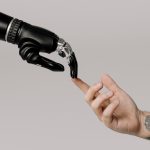The creative industry is undergoing significant transformations due to the integration of artificial intelligence (AI) and emerging technologies. The impact of AI on the creative industry overtime will be greater than people can imagine starting from:
1. Enhanced Creativity and Innovation:
AI tools can assist creative professionals by providing inspiration, generating ideas, and even creating content. For instance, AI can help artists and writers come up with novel concepts, designs, or story lines, pushing the boundaries of creativity.
2. Content Creation:
AI-generated content, such as music, art, and text, is becoming increasingly prevalent. AI can generate music compositions, produce artwork, and even write articles. This can significantly streamline content creation processes.
3. Personalisation:
AI is enabling highly personalised creative experiences. For instance, AI algorithms can analyse user data and preferences to deliver tailored content, such as personalise advertising, music playlists, or product recommendations.
4. Efficiency and Automation:
AI-driven automation is streamlining production processes in creative fields. For example, video editing and animation software can use AI to automate repetitive tasks, saving time and resources.
5. Quality Improvement:
AI can enhance the quality of creative work by automatically correcting imperfections or optimising elements like image resolution or audio quality. This is particularly useful in photography, graphic design, and audio production.
6. Market Insights:
AI can analyse data to provide insights into consumer preferences, trends, and market demand. This helps creative professionals make informed decisions and create content that resonates with their target audience.
7. Collaboration and Co-creation:
AI-powered collaboration tools are emerging, allowing creatives to work together across distances and even with AI systems. These tools facilitate remote collaboration and make creative projects more accessible.
8. Copyright and IP Challenges:
As AI generates content, it raises complex copyright and intellectual property issues. Determining ownership and attribution of AI-generated content is an evolving legal challenge.
9. Job Disruption:
While AI can enhance creativity, it also raises concerns about job displacement in the creative industry. Some routine creative tasks may become automated, affecting job roles. However, new opportunities for those who can work with AI are also emerging.
10. Ethical Considerations:
The use of AI in creative content generation raises ethical questions, such as the potential for AI to spread misinformation or create biased content. It’s important to address these concerns and establish ethical guidelines.
11. Education and Skills:
The creative workforce will need to adapt and acquire new skills to work effectively alongside AI. Training in AI tools and concepts will be essential for professionals in the creative industry.
In conclusion, the future of the creative industry with AI is promising but also complex. AI has the potential to revolutionise creativity, making it more efficient and accessible, but it also presents challenges related to ethics, job displacement, and intellectual property. The key to success for creative professionals will be embracing AI as a tool to augment their work and adapting to the changing landscape of their industry.





